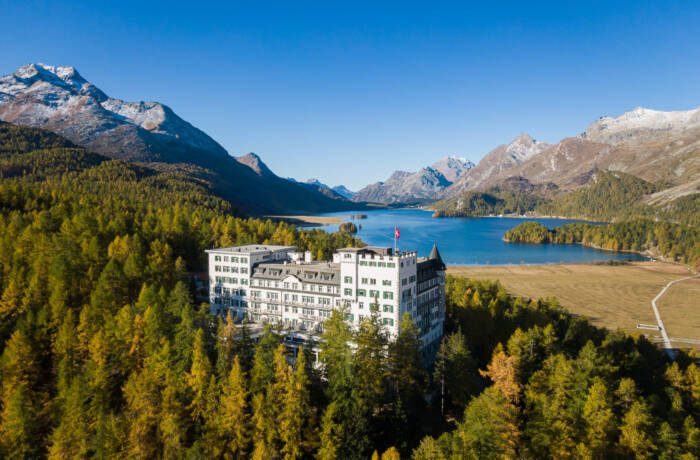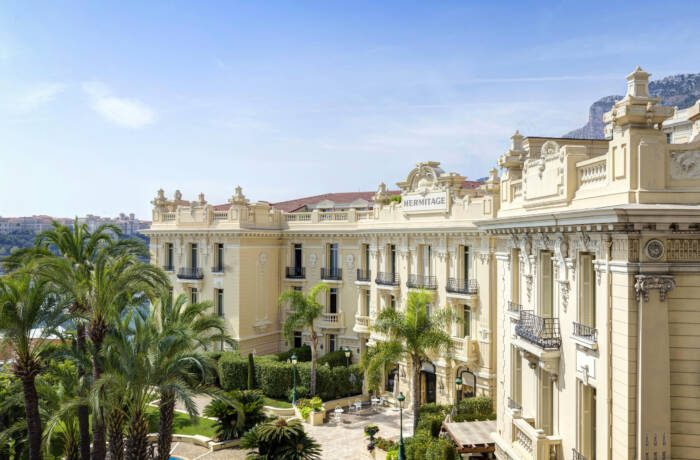A green sanctuary at the edge of Thailand’s oldest rainforest offers the eco-conscious a place to feel good about feeling good
With the opening of Thanyamundra Organic Resort, Thailand’s interior just got a little greener. Sitting at the edge of the Khao Sok National Park in the rolling hills of southern Thailand’s, Thanyamundra is a luxurious retreat that not only pampers its guests but the environment as well.
The nine-suite resort is housed in two golden, teak villas each decorated with a collection of Asian antiques. Inside there is a restaurant serving Thai cuisine and a spa offering traditional Thai herbal and aroma oil massages. Outside there is an infinity pool from which the land falls away to the terraces of the organic farm and beyond to a thick green wall of vegetation that announces the beginning of what appears to be an impenetrable forest.
It is the farm that makes Thanyamundra so unique. It is the heart and soul of the resort. On this lush, 25-acre lot, Thanyamundra organically grows 51 different types of fruits, vegetables and spices including everything from mangoes and pak choy to lemongrass, onions, pumpkins, three types of beans and four different types of rice.
When harvested this means that up to 70 percent of the ingredients used in the meals served at Thanyamundra come from the farm. Anything that is not used in the kitchen is sold online through Pura Organic. Furthermore, before any food spoils it is dried or dehydrated and fruits like bananas and mangoes are used for jam or ice cream and sorbets. Any discarded cuttings or waste is added to the compost to produce the natural fertilizers used on the farm. Even the dining menus are written up on large leaves from the garden as a way of saving paper. How’s that for eco-conscious?
The greening of Thanyamundra doesn’t end in the kitchen. The resort has taken numerous steps to reduce its carbon footprint to a bare minimum. Look around your suite and you won’t find any plastics other than the water bottles and even those are recycled once used and all amenities, cleaning products and even the mosquito spray are environmentally friendly.

On the grounds, guests move about in rechargeable electric buggies and the 50-metre lap pool uses an ozonater filtration system that naturally keeps the pool clean and reduces the amount of chlorine used.
Thanyamundra’s eco-efforts have now moved beyond the borders of its property. The resort has just teamed up with naturalist Thom Henley, author of the definitive tome on Khao Sok, Waterfalls and Gibbon Calls to blaze new trails into the heart of the park. Thailand’s biggest national park with forests dating back 160 million years, older than even the Amazon, Khao Sok is home to an incredible range of animals including wild elephants, tigers, leopards, Malayan sun bears, Asiatic black bears, barking deer, long tailed macaques, 46 species of snakes and almost 200 species of birds.
Helping guests take it all in, a series of walks has just been developed by Henley, who, when in residence, will actually conduct guided walking tours himself. According to Thanyamundra General Manager Shaun Dunhofen it is an opportunity to learn about and truly understand a part of Thailand few ever get a chance to visit. “Mr Henley is a walking encyclopaedia on Khao Sok and his passion is infectious,” says Dunhofen. “The trail walks he has developed offer a truly unique experience. I’ve done some of the walks myself and I can say that I’ve never been in a forest that teemed with such a profusion of wildlife.”
When he is not at Thanyamundra, tours will be conducted by park rangers trained by Henley. “As upscale tourism grows, there will be more jobs available for locals, either as guides or related jobs,” says Henley. “I’m very proud of our lead guide and his son, Mr Nit and You Chanyoo. Nit is a key part of the story, for his life encapsulates everything we are trying to do.”
It’s an inspiring story. Before teaming up with Thanyamundra, Nit supported his family by poaching. Like many of the other local farm boys,he poached to supplement his income – even though his mother was always against it. One day while out on a poaching run, he came across a wild elephant mother and baby and something happened. For a reason Nit himself can’t explain, his mother’s words came to him and he just couldn’t pull the trigger. Now he is not only one of the park’s most respected guides but he visits local schools teaching children about conservation. It is the combination of all these efforts that will help ensure the survival of this very special place for another 160 million years.










